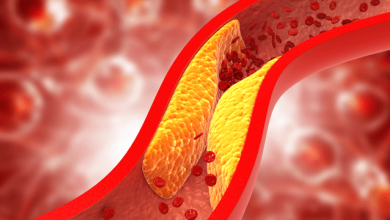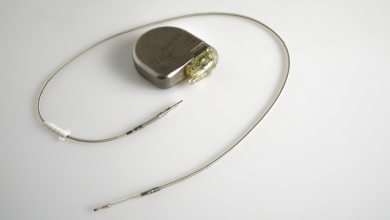Search results
Author(s):
Rodrigo Alonso
,
Leopoldo Perez de Isla
,
Ovidio Muñiz-Grijalvo
,
et al
Added:
3 years ago
Familial hypercholesterolaemia (FH) is the genetic disorder most commonly associated with elevated LDL cholesterol (LDL-C) levels from birth and with premature atherosclerotic cardiovascular disease (ASCVD).1 It is caused by mutations in genes related to the clearance of LDLs such as LDL receptor (LDLR), apolipoprotein B-100 (APOB) and proprotein convertase subtilisin/kexin type 9 (PCSK9).2 The…
View more
Author(s):
Laurent Bonello
Added:
3 years ago
Clopidogrel is a key antiplatelet agent that inhibits the second step of platelet aggregation through blockade of the P2Y12-adenosine diphosphate (ADP) receptor.1 Its use has enabled percutaneous coronary intervention (PCI) to expand by dramatically reducing thrombotic complications in acute coronary syndromes (ACSs).2,3 Since the first report by Jaremo et al. of a large inter-individual…
View more
Pradeep Natarajan
Job title: Director of Preventive Cardiology
Author
Pier D Lambiase
Job title: Consultant Cardiologist
Author
Author(s):
David Calvo Cuervo
Added:
1 year ago
Author(s):
Jean-Philippe Collet
,
Jochem Wouter van Werkum
Added:
3 years ago
Antiplatelet therapy is the standard of care for patients with acute coronary syndromes (ACS) and/or patients undergoing percutaneous coronary intervention (PCI) with stenting.1–3 Plaque rupture and/or iatrogenic vascular damage during PCI would normally result in the development of intravascular thrombus. Findings across multiple investigations consistently demonstrate the effectiveness of dual…
View more
Author(s):
Gianfranco Sinagra
,
Michele Moretti
,
Giancarlo Vitrella
,
et al
Added:
3 years ago
According to the latest position statement of the European Society of Cardiology (ESC), cardiomyopathies (CMP) are defined as “myocardial disorders in which the heart muscle is structurally and functionally abnormal, in the absence of coronary artery disease, hypertension, valvular disease and congenital heart disease sufficient to cause the observed myocardial abnormality”.1
CMP may be…
View more
Author(s):
Natalie Koh
,
Brian Ference
,
Stephen J Nicholls
,
et al
Added:
2 years ago
Author(s):
Gheorghe-Andrei Dan
Added:
2 years ago
Author(s):
Daniel García Iglesias
,
José Rubín
,
Diego Pérez
,
et al
Added:
3 years ago
Brugada syndrome (BrS) is an inherited disease with an increased risk of sudden cardiac death (SCD). Despite the wide spectrum of clinical manifestations, young and apparently healthy individuals are the most frequently affected by this devastating event.1,2 During the last 20 years, the genetic basis of Brugada syndrome has been extensively investigated, leading to major changes in gene encoding…
View more














